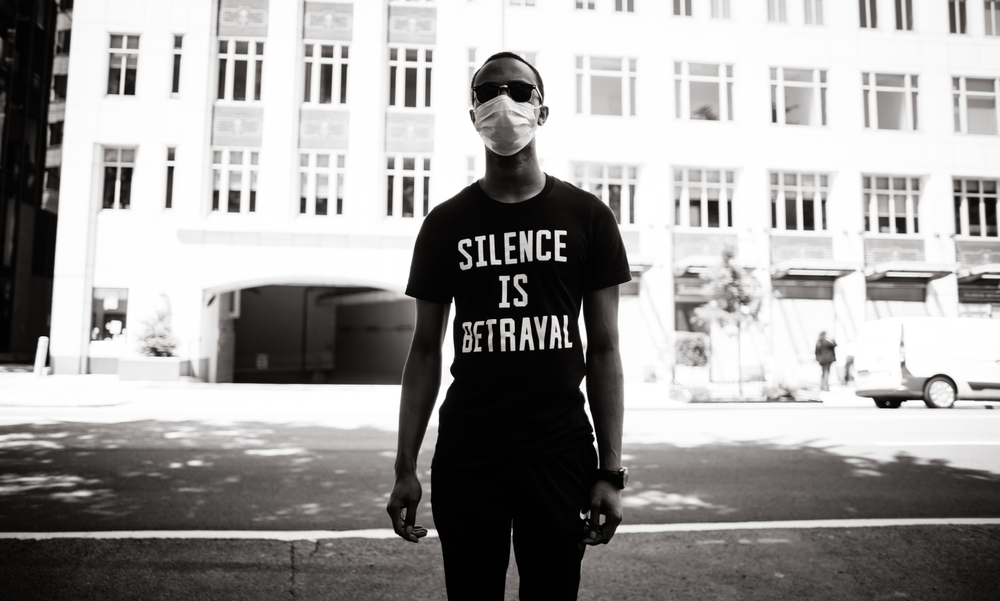
Friday, June 12, 2020
The events that started with the COVID-19 pandemic and most recently included the assassinations of Ahmaud Arbery, Breonna Taylor and George Floyd, have led to nationwide and international protest. They have broken the hearts of many and traumatized people of color in our community, our country and around the world.
The centuries-old impacts on Black, Brown and Indigenous people in our criminal justice, health care, economic and education systems are legacies of a fact: Structural racism is real. Its impacts are real. And change will not happen unless we disrupt these systems and build real relationships for listening and taking action.
We must acknowledge that the “normal life” most people enjoy is built on the backs of our Black, Brown and Indigenous neighbors. It’s built on a legacy of inequity, complicity and violence. And so while in recent months most of us have experienced limited access to basic necessities such as toilet paper, non-perishable food items and birthday parties, others have been eerily reminded that their access to a normal life is always limited — consciously, systematically, historically.
This systematic denial of normality was strikingly evident in Boulder on March 1, 2019, when a young college student was outside of his college residence hall picking up trash as a part of his student employment and within minutes found himself surrounded by eight armed Boulder Police officers. Anyone who has seen the video can sense the tension that hung the life of Zayd Atkinson in precarious balance.
Moments like these echo backward to the deaths of Trayvon Martin and Michael Brown, and forward to the deaths of Mr. Arbery, Ms. Taylor and Mr. Floyd. Our desire to help us all do better in the wake of the police confrontation of Mr. Atkinson sparked an idea.
Over the past several months, a team of concerned community members representing Naropa University, Community Foundation Boulder County, University of Colorado – Boulder, Boulder County and the City of Boulder has been working side by side, deeply immersed in a research and discovery process, trying to determine how best to create community conversation about the racial divide in our local community. These Community Conversations on Race (modeled on successful efforts in other cities such as EmbRACE LA) seek to promote, deepen and sustain meaningful cross-group relationships for racial equity through the power of structured dialogue.
While we haven’t finalized our organization around the Community Conversation model yet, we have discovered something equally meaningful: trust. Trust that comes from showing up day in and day out, committed to the goal of finding a way to connect across a divide of cruelty and dehumanization, silence and ignorance, where any misspoken word could be re-traumatizing. Trust that comes from speaking clearly and confidently from each of our lived experiences. Trust that comes from offering one another our humility and our compassion, knowing that none of us can have the impact needed unless we all keep showing up with our contribution. As Adrienne Maree Brown writes in Emergent Strategy, “No one is special, and everyone is needed.”
As our relationships have deepened, we have come to recognize that while the work we’ve been doing as a team will hopefully prove to be important, our own cross-racial friendships are what sustain the work. Our care for each other, our growing ability to listen and to learn from each other: this is what matters. Our passion to help each of our communities thrive and heal: this is what matters.
Our goal is to extend the Community Conversation model into the larger community to reform the systems to uphold the intrinsic values of historically marginalized and oppressed peoples. Our goal is to provide what we have found: a place to explore both the pain of our differences and the beauty of our true belonging.
As Lama Rod Owens writes, “We can’t heal what we don’t acknowledge, but acknowledgement can be painful and takes work, so we need effective tools and safe spaces where all feel welcome.”
We believe that white supremacy is a crime against humanity. We see racism as a public health crisis. We dream of a Boulder community that rebuilds from this pandemic, not on its old foundations, but atop a new foundation that replaces white supremacy and racism with fierce care and aggressive love.
“The fierce urgency of now,” as Dr Martin Luther King, Jr. named it, is long overdue. As Dr. Ibram X Kendi writes, “There is no such thing as a nonracist or a race-neutral policy. Every policy … is producing or sustaining either racial inequity or equity between racial groups.” And as the American philosopher Dr. Cornel West put it, “Never forget that justice is what love looks like in public.”
We are urging everyone to acknowledge the trauma, fear, anger and exhaustion of those who experience the effects of racism and prepare to join us in coming months.
Look for an invitation to participate in these community conversations. Send us an email, at kanea@bouldercolorado.gov, and be among the first to be notified once they start happening. Let us honor the lives of Mr. Arbery, Ms. Taylor and Mr. Floyd as we strive to rebuild our Boulder community in line with the values expressed here by Ms. Brown, Lama Owens, Dr. King, Dr. Kendi and Dr. West.
Sincerely,
Sheila Davis, Carrie Inoshita and Courtney Prusmack, Boulder County
Tanya Ange and Aimee Kane, City of Boulder
Chris Barge and Jeff Hirota, Community Foundation Boulder County
Regina Smith, Amanda Aguilera, and Charles Lief, Naropa University
Alphonse Keasley, University of Colorado – Boulder
Opinion Boulder County Boulder Police Department city of Boulder Community Conversation Community Conversations on Race Community Foundation Boulder County Cornel West COVID COVID-19 George Floyd Ibran X Kendi Martin Luther King Naropa University pandemic police officers racial equity racial justice racism structural racism University of Colorado Zayd Atkinson
